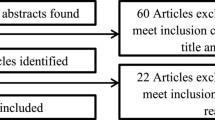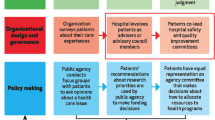Abstract
Previous research in England has suggested a medical acceptance of Community Treatment Order (CTO) coercion, but none have explored the importance of social influences on practitioner decision making. A sample of 181 practitioners with Mental Health Act responsibilities completed an online survey. They recorded their perspectives about the influence of medical and social items. Sixteen questionnaire items were subdivided into three operational aspects: discharge, renewal, and recall. Medical item averages scored significantly higher as influences than social items (medical items mean = 4.43; social items mean = 3.58; t = − 19.38, p = 0.001). The influence of separate medical and social factors was evidenced by exploratory factor analysis when related to discharge and renewal, but not for recall, where items divided into factors that resembled ‘risk’ and ‘disengagement’. Participants’ scores showed no statistically significant difference for a practitioner’s professional allegiance. The findings demonstrate that social influences are a homogeneous influence on managing CTOs, in addition to the higher scoring influence of medical factors.
Similar content being viewed by others
References
Allen, R., Carr, S., Linde, K., & Sewell, H. (2016). Social work for better mental health; A strategic assessment. Department of Health, England.
Burns, T., Rugkåsa, J., Molodynski, A., Dawson, J., Yeeles, K., Vazquez Montes, M., Voysey, M., Sinclair, J., & Priebe, S. (2013). Community treatment orders for patients with psychosis (OCTET): A randomised controlled trial. The Lancet, 381(9878), 162.
Clifford, P., Kostas, K., Lyle, J., Fultz, J., Allen, J., & Graham, P. (2002). How are you? Further development of a generic quality of life outcome measure. Journal of Mental Health, 11(4), 389–404.
Coyle, D., Macpherson, R., Foy, C., Molodynski, A., Biju, M., & Hayes, J. (2013). Complusion in the community: Mental health professionals’ views and experiences of CTOs. The Psychiatrist, 37(10), 315–321.
Crawford, M., Gibbons, R., Ellis, E., & Waters, H. (2004). In hosptial, at home, or not at all. A cross sectional survey of patient preferences for receipt of compulsory treatment. Psychiatric Bulletin, 28, 360–363.
De Riddler, R., Molodynski, A., Manning, C., McCusker, P., & Rugkasa, J. (2016). Community treatment orders in the UK 5 years on: A repeat national survey of psychiatrists. Bjpsyc Bulletin, 40, 119–123.
Girden, E. R., & Kabacoff, R. (2011). Evaluating research articles from start to finish (3rd ed.). Sage.
Hannigan, B., & Allen, D. (2011). Giving a fig about roles: Policy, context and work in community mental health care. Journal of Psychiatric and Mental Health Nursing, 18, 1–8.
Haynes, P., & Stroud, J. (2019). Community treatment orders and social factors: Complex journeys in the mental health system. Journal of Social Welfare and Family Law, 41(4), 463–478.
Jansson, S., & Fridlund, B. (2016). Perceptions among psychiatric staff of creating a therapeutic alliance with patients on community treatment orders. Issues in Mental Health Nursing, 37(10), 701–707.
Light, E., Robertson, M., Boyce, P., Carney, T., Rosen, A., Cleary, M., Hunt, G., O’Connor, N., Ryan, C. J., & Kerridge, I. (2015). The many faces of risk: A qualitative study of risk in outpatient involuntary treatment. Psychiatric Services, 66(6), 649–652.
Manning, C., Molodynski, A., Rugkasa, J., Dawson, J., & Burns, T. (2011). Community treatment orders in England and Wales: A national survey of clinicians’ views and use. Psychiatric Bulletin, 35, 328–333.
Riley, J., Fagerjord, G., & Hoyer, G. (2018). Community treatment orders—What are the views of decision makers? Journal of Mental Health, 27(2), 97–102.
Rogers, A., & Pilgrim, D. (2001). Mental health policy in Britain. Palgrave/Macmillan.
Rugkasa, J. (2016). Effectiveness of community treatment orders: The international evidence. The Canadian Journal of Psychiatry, 61(1), 15–24.
Strauss, G. P., Hong, L. E., Gold, J. M., Buchanan, R. W., McMahon, R. P., Keller, W. R., Fischer, B. A., Catalano, L. T., Culbreth, A. J., Carpenter, W. T., & Kirkpatrick, B. (2012). Factor structure of the brief negative symptom scale. Schizophrenia Research, 142(1–3), 96–98.
Stroud, J., & Banks, L. (2015). Community treatment orders: Learning from experiences of service users, practitioners and nearest relatives. Journal of Mental Health, 24(2), 88–92.
Tew, J., Ramon, S., Slade, M., Bird, V., Melton, J., & Le Boutillier, C. (2012). Social factors and recovery from mental health difficulties: A review of the evidence. British Journal of Social Work, 42(3), 443–460.
Thompson, B. (2004). Exploratory and confirmatory factor analysis: Understanding concepts and applications. American Psychological Association.
Vergunst, F., Rugkasa, J., Koshiaris, C., Simon, J., & Burns, T. (2017). Community treatment orders and social outcomes for patients with psychosis: A 48 month follow-up study. Social Psychiatry and Psychiatric Epidemiology (52), 1375–1384.
Wessely, S. (2018). Independent Review of the Mental Health Act Interim Report. London: Department of Health and Social Care. Retrieved from https://www.gov.uk/government/publications/independent-review-of-the-mental-health-act-interim-report
Wessley, S. (2018). Modernising the Mental Health Act: Increasing choice, reducing compulsion: Final report of the independent review of the Mental Health Act 1983. Department of Health and Social Care. Retrieved from https://www.gov.uk/government/publications/modernising-the-mental-health-act-final-report-from-the-independent-review
Funding
This article presents independent research funded by the NIHR School for Social Care Research. (Ref. No. C088/T15-011/UBJS-P84.) The views expressed in this article are those of the authors and not necessarily those of the NIHR School for Social Care Research or the Department of Health and Social Care, NIHR or NHS. The authors consider that they have no conflicts of interest to declare.
Author information
Authors and Affiliations
Corresponding author
Ethics declarations
Ethical Approval
Ethical approval was granted by the following ethics and governance committees: University of Brighton; South East Coast and Surrey, NHS (IRAS 196566); and Sussex Partnership Foundation NHS Trust.
Informed Consent
By completing the survey, all human participants gave consent for their data to be used in this research and the independent ethical approval process approved this as informed consent.
Additional information
Publisher's Note
Springer Nature remains neutral with regard to jurisdictional claims in published maps and institutional affiliations.
Rights and permissions
About this article
Cite this article
Haynes, P., Stroud, J. Practitioner Perspectives About Managing Community Treatment Orders (CTOs) in England and the Importance of Social Influences. Community Ment Health J 58, 1584–1591 (2022). https://doi.org/10.1007/s10597-022-00974-2
Received:
Accepted:
Published:
Issue Date:
DOI: https://doi.org/10.1007/s10597-022-00974-2




